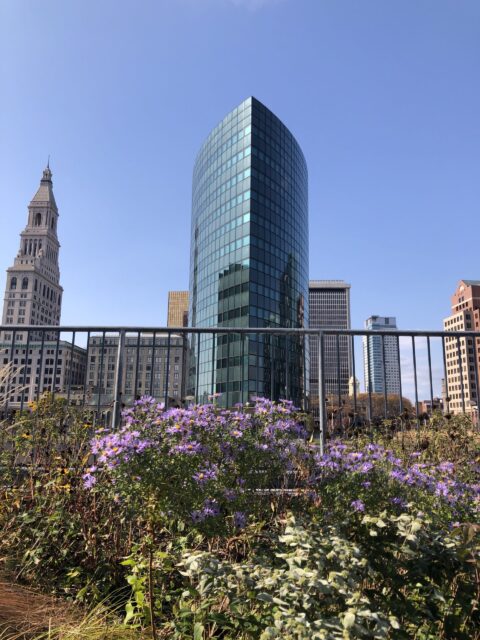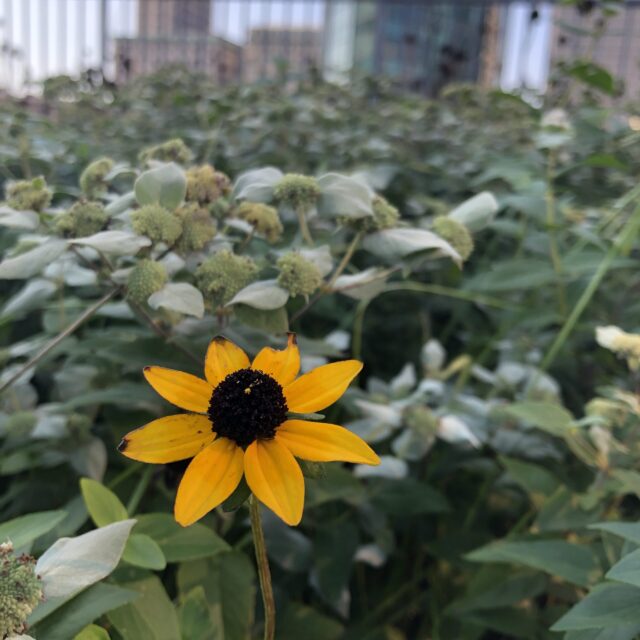“[W]e must become the systems we need – no government, political party, or corporation is going to care for us, so we have to remember how to care for each other.
And that will take time, and commitment, a willingness to step outside of the comfort of the current and lean into the unknown, together. To listen to each other across all real and perceived divides.”
– adrienne maree brown, in Emergent Strategy: Shaping Change, Changing Worlds

A parent in a Hartford suburb told me that before Halloween, a town police officer came into the school to give kids “safety” advice, which included not taking unwrapped food.
Considering that this information came in like the telephone game — filtered through a child, then through their adult — I don’t want to get too worked up about it, but the messaging is widespread enough to mention. Halloween could be treated as a day in which children and adults learn how to build trust with one another in community. The norm, however, seems to be that people are urged to treat others with suspicion.
This goes beyond the drive to eliminate the day or move it into sanitized (and frankly, boring) environments.
This perspective decides who can share, and in what ways.

Some cling to a need for authority.
I’ve encountered opposition to Little Free Food Pantries, and not for the reason I would have expected. My own occasional annoyance with them is specific to ones set up by those who have no long term plan for stewardship, leading to one of two issues: perpetually empty boxes failing to serve, or sidewalk-side messes of dropped food that attracts critters. Those are not the norm, and not the source of ire that I’m referring to.
What I hear are complaints from those who have worked or volunteered with formal, established soup kitchens and food pantries (mobile or stationary) because they perhaps feel like their territory is being invaded by others daring to lend assistance on their own, where donations — non-perishable, perishable, home grown or baked — are simply placed where others can access.
That’s obviously not how they’ve phrased it.
I have heard versions of “but there is a food pantry already in this area,” without regard to details like proof of income is required and it’s only open to town residents and they can only use it once each month, or the operating hours are a narrow two-hour window twice a week, scheduled for times when many people are working. Depending on where a person lives, food access is only opened up if you’re destitute and have nothing else to do with your day. Forget it if you are among the working poor. If you’re curious, go play on the 211 website and see some of the ridiculous restrictions. One town limits food access such that those whose last names begin A-L can only come in on the second Saturday of the month; the rest on the 4th Saturday. If you get assigned a work shift on your one opportunity that month, I guess you’re SOL.

It’s no surprise that Food Not Bombs chapters have encountered hurdles in many locations since beginning in 1981. While formal pantries and kitchens won’t serve food from already opened containers — think giant vegetable and fruit platters used at large events — FNB follows safety guidelines while allowing for commonsense to dictate whether or not they share a food item. It’s a strange distinction because an opened platter can be eaten by those who bought it, but giving it away? Nothing has changed about the contents, yet they are not considered usable by institutional servers. This could encourage event planners to underestimate instead of overestimate the amount of food they order in the interest of reducing food waste and financial cost, but apparently it doesn’t. While FNB isn’t digging food out of actual dumpsters (usually), they do take donations that are beyond jars of peanut butter and cans of beans.
Food Not Bombs doesn’t pull permits because people don’t need special permission to share food with each other, but that doesn’t stop some cities from trying to prevent them from doing so. This year in Houston, FNB volunteers were ticketed for sharing food in a public place because the city regulates where homeless can be fed in their downtown. Here’s the thing: Food Not Bombs does not ever ask people to fill out eligibility forms, prove poverty, or prove housing status because it is not a charity. Anyone can participate. It’s customary for volunteers to eat alongside (well, after serving) everyone else. It’s not foolproof, but if the worry is over food safety, I would look at that: a person is generally not going to eat food that they know has been sitting out too long or has been mishandled. This is the illustration of horizontal power sharing. This is what it looks like to build trust in community.
Capitalism and stubborn individualism teaches us to be wary of others, that they wait with hungry mouths to take what is ours. What if we told our children, and each other, that none of that is true?
And as for kids not taking unwrapped or home-baked goods? Those who have severe allergies already know to be cautious about this.
The photos in this post were taken of the gardens outside of the Connecticut Science Center. If you have not visited the patio since before 2020, do a walk-through. There have been a lot of changes, all positive.
Climate Possibilities is a series about climate mitigation, along with resilience, resistance, and restoration. It’s about human habitat preservation. It’s about loving nature and planet Earth, and demanding the kind of change that gives future generations the opportunity for vibrant lives. Doomers will be eaten alive, figuratively. All photographs are taken in Hartford, Connecticut unless stated otherwise.
Mutual Aid
“[W]e must become the systems we need – no government, political party, or corporation is going to care for us, so we have to remember how to care for each other.
And that will take time, and commitment, a willingness to step outside of the comfort of the current and lean into the unknown, together. To listen to each other across all real and perceived divides.”
– adrienne maree brown, in Emergent Strategy: Shaping Change, Changing Worlds
A parent in a Hartford suburb told me that before Halloween, a town police officer came into the school to give kids “safety” advice, which included not taking unwrapped food.
Considering that this information came in like the telephone game — filtered through a child, then through their adult — I don’t want to get too worked up about it, but the messaging is widespread enough to mention. Halloween could be treated as a day in which children and adults learn how to build trust with one another in community. The norm, however, seems to be that people are urged to treat others with suspicion.
This goes beyond the drive to eliminate the day or move it into sanitized (and frankly, boring) environments.
This perspective decides who can share, and in what ways.
Some cling to a need for authority.
I’ve encountered opposition to Little Free Food Pantries, and not for the reason I would have expected. My own occasional annoyance with them is specific to ones set up by those who have no long term plan for stewardship, leading to one of two issues: perpetually empty boxes failing to serve, or sidewalk-side messes of dropped food that attracts critters. Those are not the norm, and not the source of ire that I’m referring to.
What I hear are complaints from those who have worked or volunteered with formal, established soup kitchens and food pantries (mobile or stationary) because they perhaps feel like their territory is being invaded by others daring to lend assistance on their own, where donations — non-perishable, perishable, home grown or baked — are simply placed where others can access.
That’s obviously not how they’ve phrased it.
I have heard versions of “but there is a food pantry already in this area,” without regard to details like proof of income is required and it’s only open to town residents and they can only use it once each month, or the operating hours are a narrow two-hour window twice a week, scheduled for times when many people are working. Depending on where a person lives, food access is only opened up if you’re destitute and have nothing else to do with your day. Forget it if you are among the working poor. If you’re curious, go play on the 211 website and see some of the ridiculous restrictions. One town limits food access such that those whose last names begin A-L can only come in on the second Saturday of the month; the rest on the 4th Saturday. If you get assigned a work shift on your one opportunity that month, I guess you’re SOL.
It’s no surprise that Food Not Bombs chapters have encountered hurdles in many locations since beginning in 1981. While formal pantries and kitchens won’t serve food from already opened containers — think giant vegetable and fruit platters used at large events — FNB follows safety guidelines while allowing for commonsense to dictate whether or not they share a food item. It’s a strange distinction because an opened platter can be eaten by those who bought it, but giving it away? Nothing has changed about the contents, yet they are not considered usable by institutional servers. This could encourage event planners to underestimate instead of overestimate the amount of food they order in the interest of reducing food waste and financial cost, but apparently it doesn’t. While FNB isn’t digging food out of actual dumpsters (usually), they do take donations that are beyond jars of peanut butter and cans of beans.
Food Not Bombs doesn’t pull permits because people don’t need special permission to share food with each other, but that doesn’t stop some cities from trying to prevent them from doing so. This year in Houston, FNB volunteers were ticketed for sharing food in a public place because the city regulates where homeless can be fed in their downtown. Here’s the thing: Food Not Bombs does not ever ask people to fill out eligibility forms, prove poverty, or prove housing status because it is not a charity. Anyone can participate. It’s customary for volunteers to eat alongside (well, after serving) everyone else. It’s not foolproof, but if the worry is over food safety, I would look at that: a person is generally not going to eat food that they know has been sitting out too long or has been mishandled. This is the illustration of horizontal power sharing. This is what it looks like to build trust in community.
Capitalism and stubborn individualism teaches us to be wary of others, that they wait with hungry mouths to take what is ours. What if we told our children, and each other, that none of that is true?
And as for kids not taking unwrapped or home-baked goods? Those who have severe allergies already know to be cautious about this.
The photos in this post were taken of the gardens outside of the Connecticut Science Center. If you have not visited the patio since before 2020, do a walk-through. There have been a lot of changes, all positive.
Climate Possibilities is a series about climate mitigation, along with resilience, resistance, and restoration. It’s about human habitat preservation. It’s about loving nature and planet Earth, and demanding the kind of change that gives future generations the opportunity for vibrant lives. Doomers will be eaten alive, figuratively. All photographs are taken in Hartford, Connecticut unless stated otherwise.
Related Posts
Coffee and Cramps
The Barefoot Nobel Laureate
Decorate Downtown Yoga